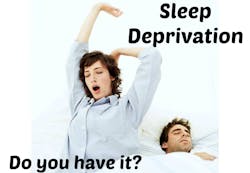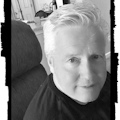As a cop in Chicago I worked rotating shifts for several years - days, afternoons, and nights. Obviously, the day shift was the easiest because it was normal to work during the day and sleep at night. Day shift is a normal circadian rhythm (CR), which is how the body responds to light and darkness in our environment. Circadian rhythms are affected by light, turning on or off the genes controlling our internal clocks. So you can see how working nights can impact performance.
When working midnights, the biological night when our alertness is lowest, our internal clock is negatively impacted in a huge way. That shift disrupts our sleep pattern and interferes with the production of melatonin, a hormone that makes us sleepy. I recall working midnights and then going to go court in the morning with an arrestee, sometimes waiting for hours for my case to be called. By the time I got home, I was so exhausted all I wanted was to collapse in bed. However, sometimes life gets in the way. My spouse or children needed something, or perhaps there was a second job I had to work. Suffice it to say, there were many times when I was in a state of sleep deprivation.
Not getting enough sleep, or for that matter, not sleeping when our CR dictates sleep, has major repercussions. Those of you who travel frequently are familiar with jet lag, which happens when crossing different time zones. Whenever I travel from my home on the east coast to somewhere on the west coast, my CR goes haywire. I feel disoriented and groggy. The time change can take several days to adjust to, and then of course when I travel back home my CR is once again out of whack. Jet lag is related to circadian rhythms. Throw off your CR and you’ll feel just like you do when you suffer from jet lag.
It’s not unusual for cops to work overtime or even double shifts. A friend of mine on a small department in the Midwest frequently works midnights and then stays on for a day shift whenever manpower is low. His sleep is minimal.
So what’s the takeaway from someone who is sleep deprived due to increased work hours? Well, for a comparison I looked at health care providers whose work hours are similar to police officers. A study for the Harvard Work Hours, Health and Safety Group concluded that nurses who work a shift greater than 12.5 hours are at a significantly increased risk of experiencing decreased vigilance on the job, suffering an occupational injury, or making a medical error. Importantly, the weight of evidence strongly suggests that extended duration work shifts significantly increase fatigue and impair performance and safety.
A report on abcNEWS.com indicated sleep deprivation may affect up to 4 in 10 police officers. The report suggests the lack of sleep leads to higher rates of safety violations, anger toward suspects, falling asleep while driving, and other problems.
The report cited a published study in the Journal of the American Medical Association that surveyed nearly 5,000 police officers in North America. It found the 40% of officers who were sleep deprived were likely to have health and performance issues, which affect public safety. The study’s authors said, “Excessive sleepiness is common in police officers. This is despite police officers apparently recognizing the dangers associated with drowsy driving; in a survey of North American police officers, almost 90 percent regarded drowsy driving to be as dangerous as drunk driving."
The study also followed the officers for two years of monthly follow-ups and found the officers had a higher rate of reporting serious administrative errors, making safety violations attributed to fatigue, exhibiting anger toward suspects, falling asleep while driving or during meetings, and absenteeism.
Sleep disorders can also lead to health problems such as diabetes, depression, hypertension, and cardiovascular disease. One of the most common problems the researchers discovered was obstructive sleep apnea, seen in more than 30% or the study’s participants.
At the Sleep Science Center at The University of Illinois, Dr. James Herdegen advised about the dangers of not getting enough sleep. “Awareness in general is important, whether this is with workers in public safety, transportation, oil or chemical plants, and manufacturing.” He suggests better scheduling my help avoid dangerous situations.
I say all well and good, doctor, but how does a police chief implement and staff three shifts, 24/7, and account for days off, light duty, injuries, and court? A rested cop is a good cop, but so many variables sometimes preclude the officers from getting the proper amount of sleep.
I’m afraid there’s no easy fix. The most obvious solution is additional personnel, but increasing the number of officers is easier said than done. Passing a budget that includes additional police salaries is anathema to most city council’s budgets.
Frankly, I don’t have a solution. I merely raise the topic about cops that are sleep deprived to illustrate a problem that affects 40% of us. In our vocation, staying alert is paramount for our safety and that of our colleagues.
Stay Safe, Brothers and Sisters! (and awake)
Links:
About the Author
John Wills
John M. Wills is a former Chicago police officer and retired FBI agent. He is a freelance writer and award-winning author in a variety of genres, including novels, short stories and poetry. John also writes book reviews for the New York Journal of Books, and is a member of the National Book Critics Circle. His new book, The Year Without Christmas, is available now. Visit John at: www.johnmwills.com.

